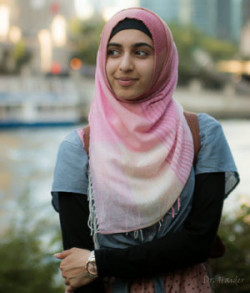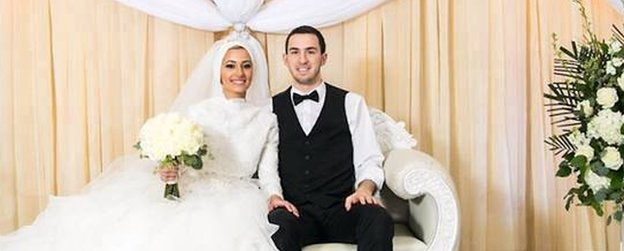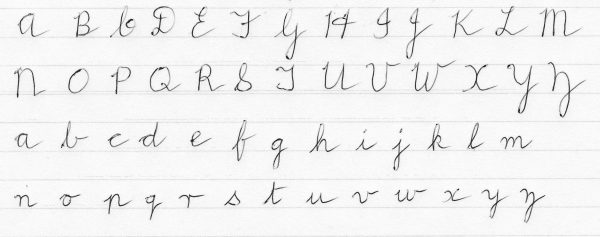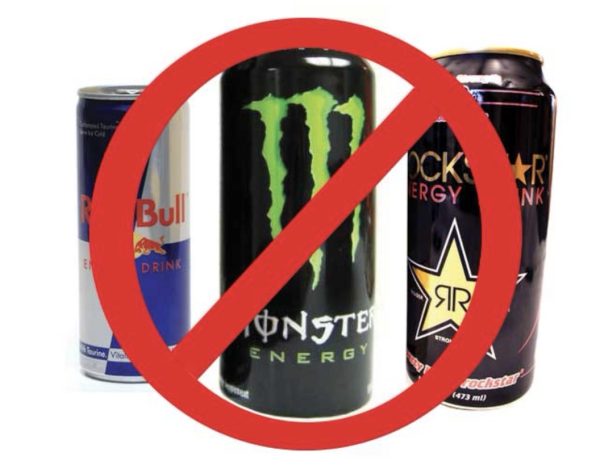For Justice
Tragedy. Cold-blooded murder. Three Muslim students were found brutally murdered in their own apartment on February 10th, 2015, in Chapel Hill, North Carolina. The young victims were Deah Barakat, 23; Yusor Abu-Salha, 20; and Razan Abu-Salha, 19. Barakat and Yusor were a newly-wed couple, and Razan was Yusor’s younger sister. All three were bright college students, Barakat and Yusor studying dentistry at the University of North Carolina. Razan, known to be very artistic, was studying architecture at North Carolina State University. The couple were known to routinely give free dental service to the poor and Yusor was reportedly raising money for a dentistry aid trip to help Syrian refugees in Turkey. Furthermore, everyone they knew described them as “gems of their community,” constantly engaged in humanitarian projects to help the needy. And all three were shot in the head by 46-year-old Stephen Craig Hicks.
The lack of immediate media coverage and attention for this tragedy is astounding. Mass media outlets refrained from publishing news of the triple homicide until over 24 hours after the attack on Barakat, Yusor and Razan occurred. Once the attack was publicized, headlines were barely sympathetic, such as CNN’s headline for the news: “3 students shot to death in apartment near UNC Chapel Hill.” The only word missing from that headline was the key word: Muslim.
Indeed, religion had played a huge role in this attack and this fact cannot be disregarded when it is most crucial to understanding what had occurred. The victims had repeatedly discussed being threatened by Hicks before the attack, who showed them his holstered gun on numerous occasions. Hicks had also posted anti-religious material to his facebook page in the past, particularly against Islam and Christianity. Barakat had been living in the same apartment complex as Hicks since 2013, but the contentions with him only began to increase once Barakat’s head-scarf donning wife joined him there. Despite these facts, many have made the dubious claim that a parking dispute was somehow the motive for the attack. Yet, in the words of Mo Idlibby, an attorney who was a friend of Barakat, “You don’t kill three people over a parking space.” In fact, there is clear evidence that shows that neither of the Abu-Salhas’ cars, nor Deah’s, were in the incorrect spots on the day of the attack, according to The New York Times.
There should be no doubt whatsoever that this was an abominable hate crime, perpetrated in the name of ideology and religious discrimination. The fact that there was any debate on this matter demonstrates the infiltration of bias by the media. In addition, CNN is only one of many news outlets that refrained from painting the full picture in an effort to subdue this tragedy to the usual news. However, this hate crime can not be suppressed as such. The father of the two girls said in an interview, “We want justice served by acknowledging what crime this is. I’m not after revenge or punishment at all.” The outcome of Hick’s trial, who was indicted on February 16th, must serve that call for justice.
In the aftermath of this attack, one can only wonder at the lack of a response. It was less than a month before this attack that we, Americans, along with world leaders and people from all across the globe, joined voices to condemn the horrible attack in Paris. Yet, I now sense much empty space around myself as I once again lend my voice to condemn a horrible attack, this time one that has left three American Muslims deprived of the lives and careers they had barely begun. Where are the marches in the name of freedom of religion? Where are world leaders condemning this blatant discrimination?
The candlelight vigil held for the three young students achieved an attendance of around 3000 family, friends and sympathizers. Where was the media coverage of this gathering that was held in honor of those murdered for simply choosing to believe in a certain faith? Friends who spoke at the vigil continued to demand for justice to the crowd of mourners. “I’ve talked to police, I’ve talked to lawyers,” the girls’ father said as his voice choked with grief.
The hypocrisy demonstrated by the media should not be taken lightly; the lives of Barakat, Yusor and Razan cannot go in vain. Instead, their lives should be celebrated and their personalities remembered. As this hate crime demonstrates, the victims of terrorism, bigotry and dogmatism, can come in all colors. Ironically, it is only the unconditional love like that of the victims that can truly combat the hate, misunderstanding, and prejudice that instigates such attacks. The loving lives of Yusor and her two family members teach us that it is time we all leave behind the petty “people” versus “people” arguments that are often engaged in, and instead unite together as humanity versus injustice. Therefore, the responsibility now lies on us to pick up what these three people left behind: their dream for a world where the less fortunate are alleviated of their suffering, for a world with solidarity, and for a world with justice.

I am a senior at Glenbard South. I have been writing for various columns for The Independent since last year, and this is my first year as editor for The...






























